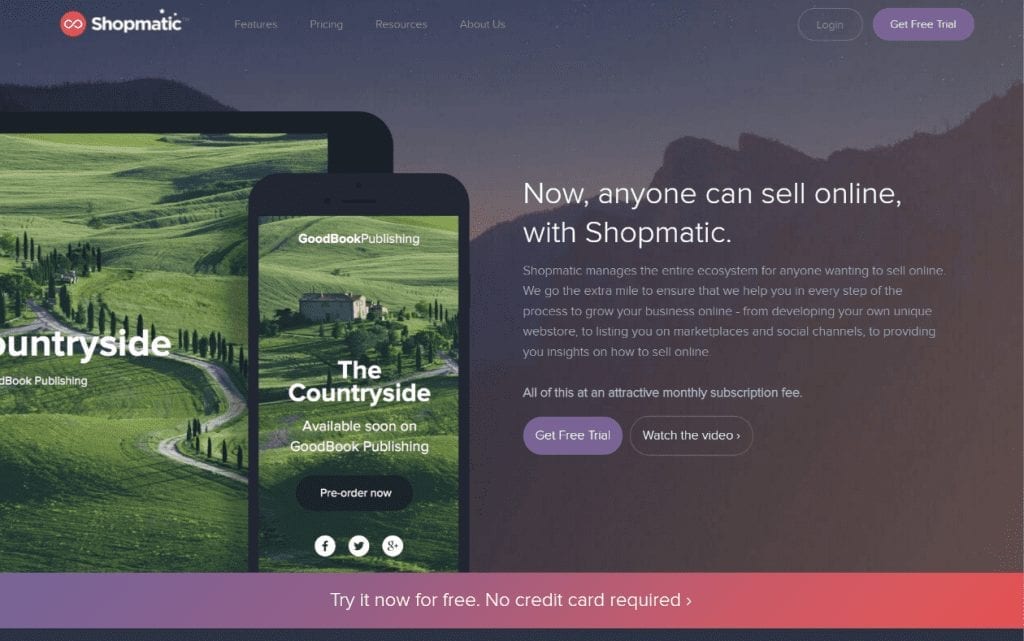
It took just one year for Anurag Avula to realise that India is an investment market. “That’s the top learning from India,“ confesses cofounder and CEO of Singapore-based ecommerce enabler Shopmatic, which forayed into the country in January 2016. However, investment for Avula doesn’t mean pumping in millions of dollars. “You need to invest in people, educate them and consult them,“ he says.
For an ecommerce enabler like Shopmatic–which helps people set up online stores–investment in human resource appears to be its biggest weapon in cracking a market where people are still apprehensive transacting online in spite of a big digital push by the government. Out of an estimated 51 million small and medium enterprises in India, only 10 mil lion are technology ready, according to a recent Google-KPMG report.
“The opportunity is massive,“ says Avula, adding that the fledgling startup is not confining itself to small enterprises. The target could be anybody. Take, for instance, an aunty that makes pickle, a mom that bakes cake, a student that gives guitar tuitions, a working professional who is also a photographer, or a retired uncle who can offer math tutions.
“While everybody wants to take their business online, they need a lot of handholding to overcome latent barriers,“ he reckons, informing that the startup has tied up with Confederation of All India Traders, representing over 6 crore merchants.
From providing free domain names to templates for building stores, to uploading pictures and text, enabling payment and shipping with domestic and international partners, and even helping list on Amazon and eBay, Shopmatic is pushing the envelope to accumulate as many users as possible. Last November, it launched a mobile app GO that enables sellers to build online sites using their mobile phones in just 2 minutes. “We are already clocking over 50,000 downloads, just weeks after launch,“ he claims. While for a first-time merchant who is tentative about the online world, GO is the best option as it helps recruit newbies into the digital world for free; for others Shopmatic offers a subscription model of $20 per month.
But why would a seller listed on a marketplace or with a page on Facebook page want a bespoke online store? Shenaz Bapooji, chief marketing officer of Shopmatic, contends there are reasons aplenty.
Some players are tired of parting with high commissions and playing second fiddle to `other brands’ on a marketplace.For them, Shopmatic offers best value.Others consider social media as a catalogue service but have trouble getting closure because the mediums are not ecommerce enabled. There is another category, points out Bapooji, who have built sites through other ecommerce platforms but are switching to Shopmatic as they need to hire experts to manage their sites. “Indians are eager to embrace digital but are waiting for someone to show the way,“ she adds.
Industry analysts attest to massive business possibilities in making Indians come online. “What is positive about Shopmatic is that it is taking a `handholding’ approach,“ says marketing expert Jessie Paul. When we say `go online’ in India, most businesses would translate that to sell on Facebook, Flipkart and Amazon or more recently on Paytm. They are not likely to look at a specific tool to achieve this and are unlikely to consider a standalone online property, as that requires a lot of brand-building and trust.
However, the Achilles heel for Shopmatic could be lack of awareness.Unlike more aggressive rivals such as GoDaddy, which has been aggressively advertising on TV, Shopmatic has been under the radar. Avula concedes awareness might be an issue but doesn’t believe in going all guns blazing.
“It is tempting to put a big burst of money behind TV, but it’s not always possible,“ he says. Shopmatic is instead opting to be efficient about its presence online, by on-boarding `non-digital’ audiences through road shows and market storming activities that help spread awareness.
“Other companies don’t enable the ecosystem for selling online like we do,“ he claims, adding that he believes in playing a smart and longterm game. “India is a priority market for us and will stay so,“ he signs off.

